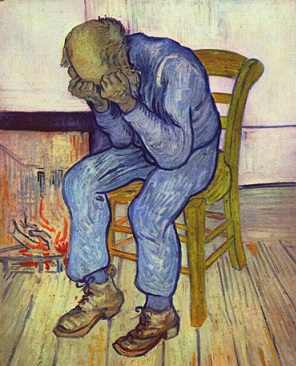Why Do People Hoard?
I was watching a western serial where they show all kinds of eccentricities people have and one of the things that they focused on was the habit of hoarding by some people . The things people hoard is amazing, one of the ladies had kept all the newspapers ever since she had moved to her new house which was twenty two years ago, and one could see papers all over the house , stacked up on shelves in the living room, stacked up on table tops, in the attic, on the kitchen shelves and the garage almost filled with papers. When asked what she intended to do with it, she had no ready answer and neither is she intending to give them away, at least in the near future!
This according to psychologists is a mental attachment that make us feel that we own something, we mentally attach an "overhead" on its value. And this very attitude makes it hard for us to make any rational or objective decisions related to the object. We go on accumulating without giving it a rational or practical thought and it becomes a habit to do so all our lives ! Some people have the habit of keeping every single dress they have used during their life time, so one can see wardrobes, suitcases and trunks filled with dresses. I have even read about a man who never trusted banks and so kept keeping currency notes in a cupboard never spending it.After he died the notes were discovered by his son and half of them were eaten away by silver fish !So one wonders what exactly drove him to do such a thing!
Again they are not sure why they do this and what purpose nor how is it going to benefit them in the future ! They don’t think for a moment – Is that really going to make me happier? One can see that in most middle class and upper middle class households people are going overboard with the things they buy and own.

Stem the inflow
According to social psychologists this is a relatively new phenomenon which has evolved with consumerism, and the only way to overcome is when we learn to stem the inflow. We need to think before we buy, seriously ask ourselves, "Do I really need this and is going to make me happier or any great difference to my life ? ' he is not the only one who thinks we are going overboard with the things we own. Most people these days have developed a life style where shopping takes priority over many other hobbies and outings. This shop-till-you drop lifestyle combined with a rising disposable income has given rise to a new type of individual - The hoarder !
Compulsive hoarding is now considered a disorder characterized by a person's tendency to go on collecting and their unwillingness to discard objects with seemingly little or no value like the case I mentioned above of the newspaper hoarder. A compulsive hoarder has often been linked with depression, alcohol abuse, anxiety, and attention-deficit hyperactivity disorder among other mental illnesses.
In some cases, the tendency to hoard is so great in some individuals that it begins to have a negative impact affecting interpersonal relationships. People also don’t seem to realise that they are putting their own safety and home at a safety risk with the possibility of outbreak of disease or fire.
Compulsive hoarding
Most of us like to collect artifacts or souvenirs when we travel and visit other places and display them around the house, which within limits is a healthy and pleasant hobby as long as it doesn’t come in the way of your day today life. I happened to visit a home recently which was no less than an art museum with every kind of artifact and beautiful objects from all over the world being displayed in every corner of the house. But I could hardly sit in place because I was perpetually scared that I would touch or topple something, and on top of that the lady kept giving me instructions – don’t move your right hand since the ming vase is right by the side...etc etc, so much so that I could see the husband getting irritated at one point and walk out muttering, I am better off in the garden, at least there I don’t have to constantly keep watch on what I might knock over!
Makes me think whether this too is akin to hoarding newspapers for years that I spoke about earlier – No doubt that there is a fine line between compulsive hoarding and keeping souvenirs -while it is okay to retain your wedding trousseau or old pictures and stuff that has sentimental value , I personally feel that anything that is coming in the way of Happiness or making people around you especially your own family members feel uncomfortable is not healthy.

What do we need to make us happy ?
If we were to think of things that make us happy – like for instance people feel buying a bigger car, buying a plot of land and building a home, a new plasma TV, a diamond set ! One wonders whether we are going to be happy when we own all of these ? If an individual associates his/her happiness with possession , it shows that he or she is a pretty bad judge of their own happiness. Dr Ryan Howell, assistant professor of psychology at San Francisco State University, conducted a study on this particular subject. He found that people are happier when they buy an experience instead of material things. Here some people bought dresses, bags, shoes, jewelry etc and some others opted for things that offered them an experience, such as concert tickets, fine dining, a karate class, or a vacation! The second category of people were far more happier and satisfied than the first.
The reasons are obvious –First of all, the value of a material purchase depreciates over time while the experience that you have had or a skill you learnt does not, in fact with time it becomes even more precious and dear to us.
Secondly people have the tendency of comparing their purchase with other people and most of the time feel that they may not have got a good deal. So the fewer things we have the lesser reason for us to crib and feel unhappy , and more pleasant experiences, the more we can hope to lasting happiness. Buying a new car may make you happy for a few months until the first crash or a scratch and after that it is nothing but pain and heartache to see it getting scratched and growing old. But the memories of a weekend getaway will last a life time, bringing a smile to your face year after year.
Endowment Effect
The endowment effect is a word coined by American economist Richard Thaler. According to him when we own something, we also mentally attach an "overhead" on its value, which makes it hard for us to make rational or objective decisions related to the object. This is endowment effect which has now become very popular term in financial investments and insurances.
This very mentality makes it difficult to get rid of things you own, because we attach sentimental value to them and they are not just things -they become our things and possessions . We can see that regardless of how major or minor the tendency to hoard is, what complicates matters is that hoarders usually have no idea that they are having a problem – they tend to think that other people are jealous of them or simply enter into a state of denial where they refuse to acknowledge that what they're doing is not normal. So, according to analysts what is most important is to train your mind and accept facts that may seem painful to you. If you want a clutter-free home and life, then one has to admit to the problem at hand and ask some honest questions to oneself and also be ready to face answers and remedies that need to be taken.
When trying to decide what to keep and what to dispose off, ask yourself whether you have a use for it and also what was the purpose of hoarding it. If in case you did think of using it at a future date, make sure to do so since that future date is now and if you are unable to do so now, you never will put the stuff into use at any other time . Your mind will no doubt give you enough and more reasons to justify keeping what you have and that’s how you have been keeping all the old clothes, bottles and jars ,unused picture frames, old magazines, paper cuttings and paper bags with the hope that you might have use for them at some later point in time.
Here, Tom Strafford, author of Mind Hacks makes an interesting suggestion – He advises compulsive hoarders to ask themselves a question that counters the endowment effect – Suppose if I didn't have this object , how much effort would I put in to obtain it? ( most agree that they could easily live without it and would make no effort to actually obtain it) This helps us separate the things that we think are important and that we may need, and things that we actually need!
Mental Hoarder ?
Most of us are mental hoarders to a certain extent since we are human and feelings and emotions very much part of us. But are we compulsive mental hoarders? Many people spend their days and months wasting time unnecessarily brooding over past insults, carry around slights and put-downs that they have been subjected to (most of which may have been imagined or real) like a heavy schoolbag that weighs them down , all the time questioning themselves what went wrong and why did they have to suffer in such a way ?What you actually need to do is clear your mind instead and you will be more at peace and be able to get on with things.
But how does one do it ? since we have already agreed that it is a disorder and therefore it is not easy for an individual to come to terms. Analysts give 3 simple technics that help..
1, Analyse – Mental Analysis has immense benefits for us human beings. When a person analyses the slight that he has felt , the insult and the feeling of being left out with an open mind, a different picture comes through and the person might in fact realise that things were definitely not as bad as what it seemed before.
2, Rectify – Secondly one can try and rectify the fault if it's from your side so that you do not face such things in the future. No one is perfect and mistakes do happen but what is far more important is to accept them and make amends. For example - if you missed a job opportunity merely because you were not good at communication , instead of taking that as an insult, you can work at developing better communication skills instead of merely brooding over it.
3, Let go – There are certain things in life that cannot be changed and once we know our limitations it is wiser to accept and let go. For example – If you are short and average looking and a girl rejects your marriage proposal , there is no point in brooding over it and feeling small. You only become a mental hoarder, torturing yourself over the rejection? Instead once you accept that there's nothing you can do about it, and let go you will be in a better frame of mind also when you go deep into the reason, you should be able to realise that the rejection itself shows a lopsided value system from the girls side and you are better off without such people who give undue importance to a person’s looks…. Basically, what it means is learning to accept the unchangeable! Although it may seem tough to follow in the beginning with practice it will come more easily. And your peace of mind is definitely worth it!
Conclusions
Human beings have the tendency to hoard either things or mental trvialities – it may be because they are making things easier for their future life or it is in built in them or because they feel secure. But when it goes above normal limits, it becomes a disease and can cause harm in every way. There is a proverb which says that everything should be done within limits. There is beauty when things are subtle and in small measures , too much of anything is too bad !
